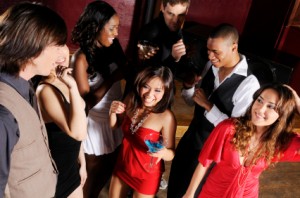 Energy drinks are beverages that typically contain several stimulants with the primary stimulant being caffeine. Mixing energy drinks with alcohol, usually a type of liquor, has become increasingly popular among young adults over the past few years. As a result, energy drinks are commonly used as mixers for alcoholic drinks in bars and nightclubs.
Energy drinks are beverages that typically contain several stimulants with the primary stimulant being caffeine. Mixing energy drinks with alcohol, usually a type of liquor, has become increasingly popular among young adults over the past few years. As a result, energy drinks are commonly used as mixers for alcoholic drinks in bars and nightclubs.
According to the Centers for Disease Control and Prevention, CDC, when alcoholic beverages are mixed with energy drinks, the caffeine in these drinks can mask the depressant effects of alcohol. At the same time, caffeine has no effect on the metabolism of alcohol by the liver and thus does not reduce blood alcohol concentration or reduce the risk of alcohol-attributable harms.
As a server, it is important for you to understand what it is that you are giving to your customers. Take a few seconds and think about how alcohol and energy drinks are typically served in your establishment. Do you have any house policies regarding the number of alcohol and energy drinks that may be served to one person or the size of the drink?
Mixing energy drinks with alcohol can be extremely dangerous. Here are a few possible side effects to consider:
- Increased risk for heart problems– Energy drinks contain a much higher level of caffeine than other mixers, and that can increase a person’s blood pressure and cause cardiac problems. An 8.3-ounce can of Red Bull contains 80-milligrams of caffeine. By comparison, soda, such as Coca-Cola, contains about 34-milligrams of caffeine per 12-ounces. Most cola mixed drinks do not contain a full 12-ounces of cola. When a patron orders a rum and coke, they are not getting 34-milligrams of caffeine. In comparison, many establishments will split a can of Red Bull between 2 drinks, meaning that a patron will be consuming about 40-milligrams of caffeine per drink.
- Nervous system issues – When consumed, alcohol acts as a depressant which relaxes a person’s body, while energy drinks act as a stimulant. Mixing a depressant and stimulant in your body can negatively affect the nervous system, causing potential harm.
- Everyone’s body reacts differently – Everyone will have a different reaction when combining energy drinks with alcohol. As a server, you do not know what type of medical issues your patrons have. They may not even know. If they have an unknown heart condition, consuming these drinks can trigger complications.
- Effects of alcohol multiplied – If a person consumes too much alcohol, they are likely to experience a hangover the next day. Many times, symptoms such as nausea, headaches and fatigue are increased if they consume energy drinks with alcohol.
- Caffeine and other ingredients not regulated by the FDA – Manufacturers of soft drinks, such as Coca-Cola and Pepsi, are limited by the Food and Drug Administration, FDA, as to the amount of caffeine one beverage may contain. Energy drinks, on the other hand, are exempt from FDA regulation. Therefore, these types of drinks have unpredictable doses of caffeine and other ingredients in them. Since there is no hint on their labels as to the amounts of these ingredients per serving, they can lead to serious health effects, especially when mixed with alcohol.
- Causes a less-intoxicated feeling – Those who drink alcohol mixed with energy drinks tend to feel less intoxicated. This can allow a person to think he/she is not intoxicated and consume more than his/her body can handle.
A link to continue to the next page will appear here when this time has elapsed.